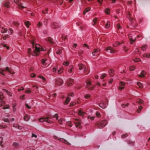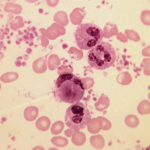
Anton_Medvedev / shutterstock.com
ACR CONVERGENCE 2020—In a year like no other, the 2020 virtual ACR Convergence was a meeting like no other. Nonetheless, the meeting introduced a healthy mix of clinical insights and take-home pearls, according to panelists in the meeting’s closing session, Bright Future: Discovery & Growth.
In this session, panelists discussed some of the biggest news from ACR Convergence 2020 and how the virtual format compared with the traditional annual meeting. The virtual format attracted 16,000 attendees from 119 countries, said Gregg Silverman, MD, a professor in the departments of medicine and pathology at New York University Grossman School of Medicine. There were up to 7,000 attendees online during any given time, he added.
Here are some of the meeting highlights discussed during the closing session.
COVID-19

Dr. Silverman
With all eyes on COVID-19 for obvious reasons, ACR Convergence provided several updates on the disease and its connections to rheumatology. Anthony S. Fauci, MD, director of the National Institute of Allergy and Infectious Diseases, presented a prerecorded session with a COVID-19 overview, and the ACR presented him with the inaugural Distinguished Global Public Health Award. Various presenters covered COVID-19 as it relates to health disparities, lung inflammation, hydroxychloroquine, vaccines and telemedicine.
One important COVID-19-related presentation, according to Dr. Silverman, was that from Yu Zuo, MD, an assistant professor with Michigan Medicine at the University of Michigan, Ann Arbor. His research focused on the measurement of pathogenic autoantibodies in hospitalized patients with COVID-19. Researchers

Dr. Kamen
examined sera from 172 patients for eight types of autoantibodies, including anti-cardiolipin IgG/IgM/IgA, anti-beta-2 glycoprotein I IgG/IgM/IgA and anti-phosphatidylserine/prothrombin IgG/IgM antibodies. Anti-cardiolipin IgM antibodies were found in 23% of COVID-19 patients, anti-phosphatidylserine/prothrombin IgG antibodies in 24% and anti-phosphatidylserine/prothrombin IgM antibodies in 18%. Higher levels were usually associated with more severe COVID-19.
Lupus
Although 2020 was not a great year overall, it actually was a great year for lupus research, said panelist Diane Kamen, MD, MSCR, an associate professor of medicine at Medical University of South Carolina, Charleston. Several ACR Convergence presenters shared study results related to new potential treatments for lupus, she said. This included data about anifrolumab, which was part of the Phase 3 TULIP-1 and TULIP-2 trials and discussed in a plenary session from Richard A. Furie, MD, a professor at the Donald and Barbara Zucker School of Medicine at Hofstra/Northwell in Great Neck, New York, as well as several other presenters. Anifrolumab is a fully human monoclonal antibody that binds to subunit 1 of the type 1 interferon receptor.



